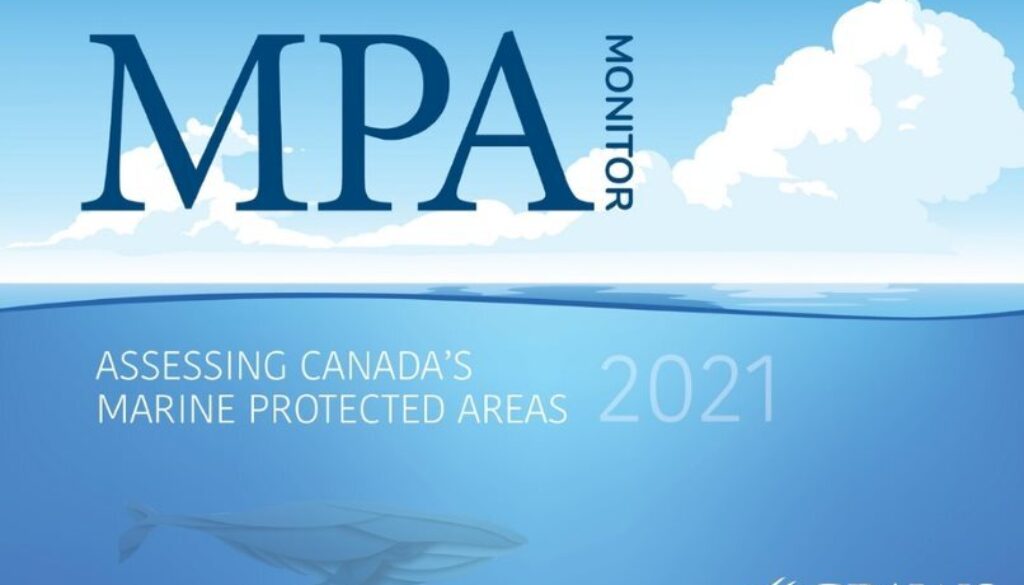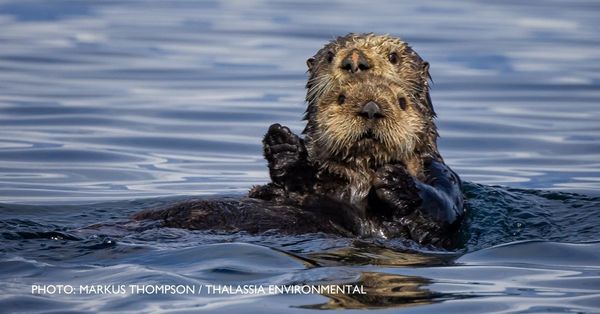CPAWS Report Finds BC’s Marine Protected Areas Need Urgent Strengthening
For more information, please contact:
Rippon Madtha
Communications Manager
rippon@cpawsbc.org
604-685-7445 (x23)
FOR IMMEDIATE RELEASE
October 28, 2021
CPAWS Report Finds BC’s Marine Protected Areas Need Urgent Strengthening
More than 60% of BC’s marine protected area waters are not effective at protecting biodiversity. Canada needs to implement its minimum standards to effectively safeguard biodiversity and fight climate change.
Unceded Coast Salish Territory / Vancouver, BC – Today, the Canadian Parks and Wilderness Society (CPAWS) released The MPA Monitor, a first-of-its-kind assessment of the quality of Canada’s marine protected areas (MPAs). Using The MPA Guide, a scientific tool to evaluate MPA protection, CPAWS analysed the five MPAs which make up five per cent of the Pacific Ocean in BC. Over 60% of BC federal MPAS do not have the strong, high-quality protections in place that support thriving ocean life and healthy communities.
According to a 2018 study published in Marine Policy, MPAs are one of the most effective tools to restore habitats, rebuild biodiversity, and help species adapt to climate change, but only when they are strongly protected and effectively managed. In 2019 Canada announced it had protected almost 14% of the ocean, exceeding the international goal of 10% by 2020. It has since committed to build on this to protect 25% of the ocean by 2025 and 30% by 2030, in line with global scientific consensus needed to effectively protect marine biodiversity.
“SG̱aan Ḵinghlas-Bowie Seamount MPA is an excellent example of an effective MPA on the west coast, scoring as strongly protected under The MPA Guide,” says Kate MacMillan, CPAWS-BC’s acting Ocean Conservation Manager. “But not all MPAs are created with high-protection. We need to see protection measures in BC MPAs improved, such as prohibiting bottom trawling in the Scott Islands marine National Wildlife Area.”
First Nations, conservation groups and community members have sounded the alarm of poor quality ocean protection in Canada for years. In 2019, in response to these concerns, Canada committed to establish minimum protection standards for all new federal MPAs that would prohibit bottom trawling, oil and gas, mining, and dumping. Canada also committed to eventually review existing MPAs against those minimum standards. However, two years later, we are still waiting for action.
The MPA Guide was developed by an international team of experts to allow for a global assessment of MPA standards. CPAWS is the first organization to assess Canada’s federal MPAs against both The MPA Guide and the minimum protection standards. CPAWS found that implementing the minimum protection standards would provide a critical basic level of protection and improve Canada’s scores under The MPA Guide framework. With minimum standards in place, two BC MPAs would move from incompatible to weakly protected, and another two BC MPAs from weakly to strongly protected.
“Canada continues to increase marine protection on the BC coast with planning for a large Offshore Pacific MPA west of Vancouver Island and an MPA network for the north and central coasts,” adds MacMillan. “We need to make sure these MPAs implement Canada’s minimum standards to effectively conserve ocean life and prevent them from being no more than ‘paper parks.’”
Visit www.cpaws.org/oceanreport to read the full version of The MPA Monitor.
-30-
Background
- The MPA Guide: A Framework to Achieve Global Goals for the Ocean provides a novel science-based framework to consistently plan, establish, and track MPAs and their outcomes for both biodiversity and human well-being.
- Evidence shows that at least 30%, and as much as 70% or more, of ecosystems need to be conserved to reverse nature’s decline and safeguard a healthy planet for people and nature. This is consistent with CPAWS’ long-standing goal of protecting at least half of Canada’s ocean, public land and fresh water.
- A recent paper summarizes the benefits of effective and strongly protected MPAs, including increasing fish biomass by 600% and helping to mitigate climate change and its effects. Research recently published in Nature calculated that protecting 30% of the ocean in strong MPAs could help to restore ocean ecosystems as soon as 2050, with significant economic benefits.
- MPAs can produce financial returns of up to 10:1 on every dollar invested and create as many jobs per million dollars as most industrial sectors but only if they are effectively protected and well resourced. Effective MPAs also have more positive well-being outcomes for people than negative ones.
For more information, please contact:
Rippon Madtha
Communications Manager
rippon@cpawsbc.org
604-685-7445 (x23)
About CPAWS-BC:
The CPAWS British Columbia chapter (CPAWS-BC) works to protect wilderness in every corner of BC and deep into the ocean. We have been defending BC since 1978, and are dedicated to keeping BC’s natural environment thriving forever. Nature is BC’s best hope.
CPAWS-BC’s office is located on the ancestral and unceded territory of the səl̓ílwətaʔɬ (Tsleil-Waututh), Sḵwx̱wú7mesh (Squamish), and xʷməθkʷəy̓əm (Musqueam) Nations.
Visit: cpawsbc.org | Follow: @CPAWSbc


